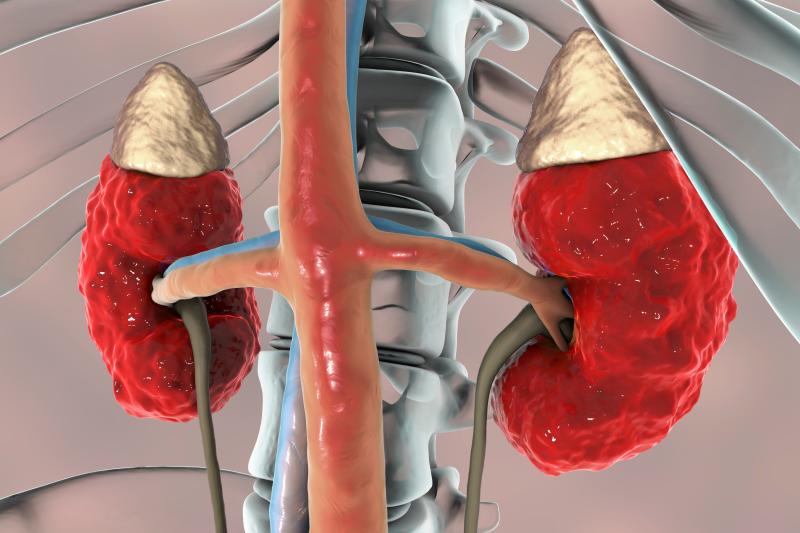
Gout entails an increased risk of advanced chronic kidney disease (CKD), and the risk is strongest for the outcome of end-stage kidney disease (ESKD) but extended to other surrogate measures of CKD progression, a study has found.
Researchers used data from the UK Clinical Practice Research Datalink and reviewed the medical records of 68,897 adult gout patients and 554,964 matched nongout controls. The median follow-up was 3.68 years.
Compared with controls, gout patients were slightly older (median age, 62 vs 59 years) and had higher prevalence of known risk factors for kidney disease, including hypertension, diabetes, hyperlipidaemia, ischaemic heart disease, benign prostatic hyperplasia, pre-existing CKD and history of acute kidney injury. They were also more often prescribed renoprotective medications, diuretics and nonsteroidal anti-inflammatory drugs.
The primary outcome of advanced CKD was significantly higher in the gout vs control group (8.54 vs 4.08 per 1,000 patient-years). This outcome was defined as first occurrence of: (1) dialysis, kidney transplant, or diagnosis of ESKD or stage 5 CKD; (2) estimated glomerular filtration rate (eGFR) <10 mL/min/1.73 m²; (3) doubling of serum creatinine from baseline; or (4) death associated with CKD.
Multivariable Cox analysis revealed gout to be associated with about a 30-percent increase in the risk of advanced CKD (hazard ratio [HR], 1.29, 95 percent CI, 1.23–1.35). The association was most pronounced for ESKD (HR, 2.13, 1.73–2.61) and was present for eGFR <10 mL/min/1.73 m² (HR, 1.45, 1.30–1.61) and serum creatinine doubling (HR, 1.13, 1.08–1.19), but not for CKD-associated death (HR, 1.14, 0.99–1.31).
The association between gout and advanced CKD was replicated in propensity-score matched analysis (HR, 1.23, 1.17–1.29) and in analysis limited to patients with incident gout (HR, 1.28, 1.22–1.35).
More studies are warranted to establish whether adequate control of gout can help mitigate the risk of CKD progression, the researchers said.